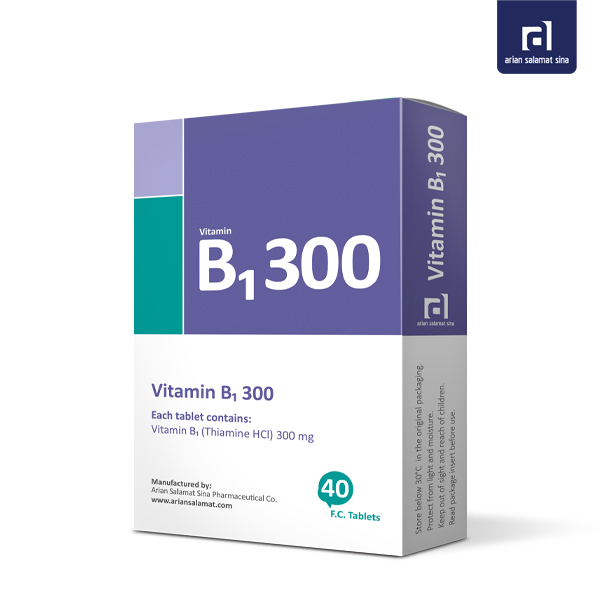Description
Vitamin B₁ is an essential and water-soluble vitamin that was first isolated from rice bran in 1911 by a Polish biochemist named Funk. This vitamin is also called thiamine. Thiamine plays an essential role in the metabolism of carbohydrates and the functions of the nervous system and helps to provide energy from the metabolism of sugars. Thiamine plays an important role in many reactions of energy production (ATP) and also in the production of some basic compounds in the human body.
After taking a food or supplement containing thiamine, this essential vitamin is absorbed from the beginning of the small intestine and reaches all the cells in the body through the bloodstream. A small amount of this vitamin is stored in the liver, and excess consumption is excreted from the body through urine. Since the human body is not able to produce vitamin B₁, it must be taken sufficient amounts of this vitamin daily from food or supplements. Consuming alcohol, drinking a lot of tea, and lack of folate also cause to thiamine absorption disorders.
Cooking foods
Heating, cooking, food processing, boiling in water, as well as oxidation are important factors in the degradation of thiamine in food. The percentage of destruction of thiamine in food due to cooking depends on many factors such as cooking time, pH, temperature, amount of water used and discarded.
Thiamine deficiency symptoms
- Peripheral or central neuropathy
- Cognitive and emotional changes
- Atherosclerosis and peripheral artery disease
- Oxidative stress
- Exhaustion, irritability and anorexia
- Abnormal ocular motor signs
Indications:
Prevention and treatment of vitamin B₁ deficiency.
Vitamin B₁ deficiency may occurred in these conditions:
- Inadequate intake and malnutrition
- Heavy and continues exercises
- Alcohol abusing
- Wernicke Korsakoff encephalopathy
- High dose and prolonged uses of diuretics and anti-hypertension medications
- Type 1 and 2 diabetes
- Alcohol withdrawal


Reviews
There are no reviews yet.